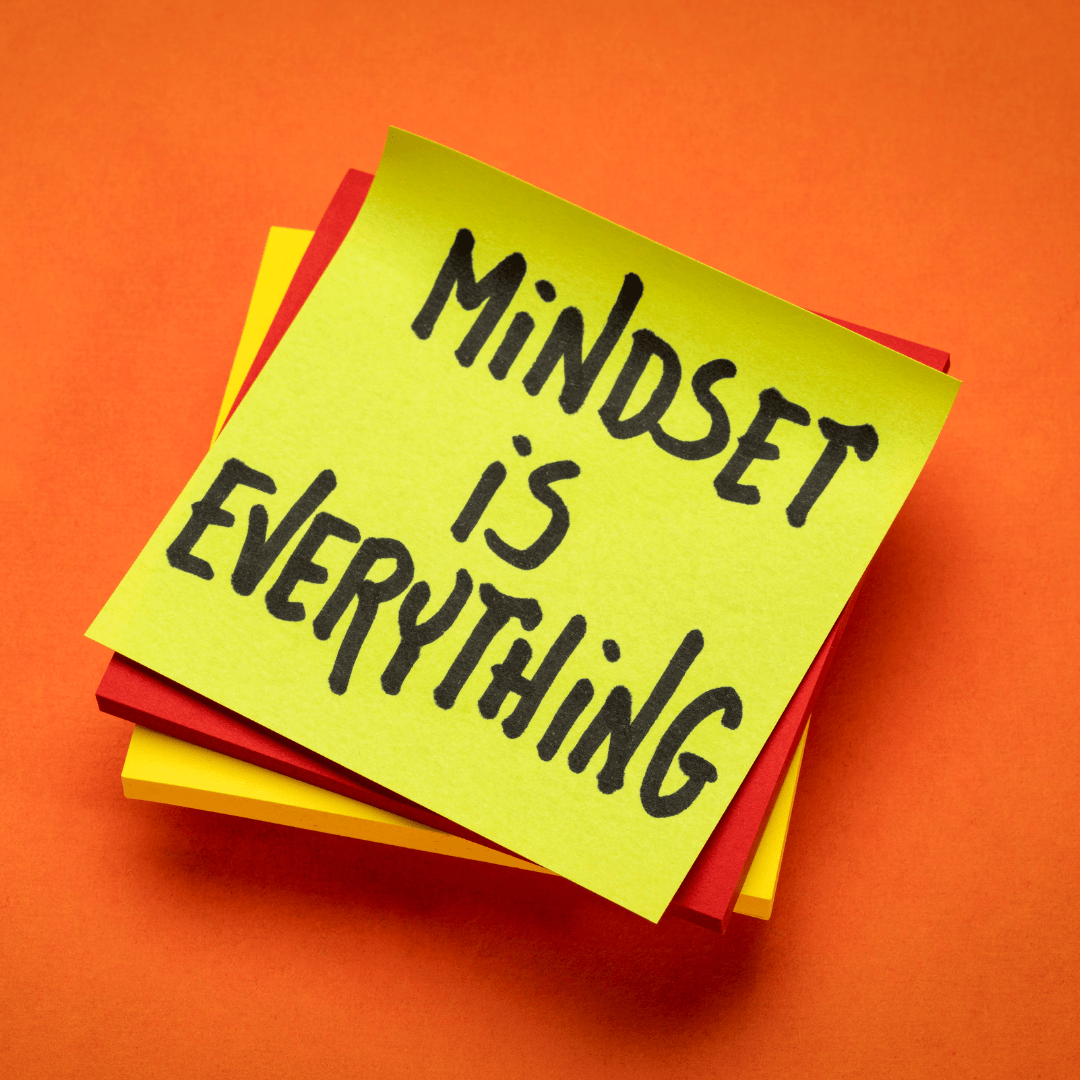Recently, promoting mindfulness in the workplace has been on the rise, with many people looking to incorporate it into their lives. The workplace is one area where mindfulness can be beneficial. There are several reasons why mindfulness is suitable for the workplace. It can help boost productivity, improve focus and concentration, and reduce stress. Mindfulness can also help promote better communication and teamwork.
What is Mindfulness?
Mindfulness is a state of active, open attention to the present. When you’re mindful, you observe your thoughts and feelings from a distance without judging them as good or bad. Instead of letting your life pass you, mindfulness means living in the moment and awakening to experiences.
It can be easy to forget about today or dwell on the upcoming challenges. Mindfulness helps break this habit by teaching you to focus on the present moment. Once you learn to be mindful, you can enjoy life more and appreciate the world around you.
If you’d like to learn more about mindfulness, check out several resources. You can find books, articles, and websites that guide meditation and living mindfully.
The Science Behind Mindfulness
Mindfulness is a practice that helps you center on and pay attention to the present moment. Mindfulness aims to help people become more aware of their thoughts, feelings, and body sensations for their overall well-being.
How Does Mindfulness Work?
There is a growing body of scientific evidence that suggests mindfulness can have a positive effect on physical and mental health. For example, mindfulness has been shown to reduce stress, anxiety, and depression. Additionally, mindfulness has been linked to improved sleep quality, immune function, and heart health.
While the exact mechanisms behind these effects are not yet fully understood, mindfulness is thought to work by helping people regulate their emotions and cope with stress more constructively. Mindfulness may also help increase certain brain chemicals linked to positive mood and well-being.
Get Started with Mindfulness in the Workplace
One area where mindfulness can be beneficial is at work. If you want to explore how to get started with mindfulness at work, here are a few tips.
First, be aware of your thoughts and emotions throughout the day. This can be done by taking a few minutes each hour to check in with yourself and notice what you are thinking and feeling. You can also journal at the end of the day to reflect on your experiences.
Second, try to focus on your breathing and pay attention to your bodily sensations. This can help you to ground yourself in the present moment and reduce stress. You can take a few deep breaths whenever you feel overwhelmed or stressed.
How Mindfulness Can Help You Succeed at Work
Cultivating mindfulness-based practices has been shown to help people in many situations. It also has the potential to boost your work performance. Here are three ways that mindfulness can help you succeed at work:
1. Mindfulness can help you focus and stay on task. When you’re mindful, you’re less likely to be distracted by your surroundings or your thoughts. This can help you stay focused on your work and get more done.
2. Mindfulness can help reduce stress. Work can be stressful, but you can manage your stress better if you’re mindful. When you’re stressed, it’s challenging to focus and be productive. But if you practice mindfulness, you can learn how to better deal with stressors so they don’t affect your work performance as much.
3. Mindfulness can help you deal with difficult people or situations. Mindful, you can see the situation more clearly and respond to it productively. You won’t get so angry or frustrated that you blow up at someone or make a bad decision.
4. Mindfulness can help you be more creative. When you’re mindful, it is easier for your mind to enter the flow state, which is essential for creativity. In a flow state, time stops, and you get more done in less time.
Benefits of Mindfulness in the Workplace
Mindfulness can be practiced in nearly every aspect of life, including working and meeting deadlines. It means focusing on the immediate moment while staying non-judgemental to oneself and others. Practicing mindfulness at work increases satisfaction rates regarding overall productivity, communication, and stress while lowering it significantly.
Mindfulness enhances core skills at every interaction by fostering one’s ability to listen deeply without judgment. While fully present, a person genuinely tries to understand and focus on what the other side is saying, which helps with conflict resolution and cooperative decision-making.
Finally, regarding productivity, being present and alert enables people to manage their tasks more effectively without being distracted or overwhelmed. Mindfulness helps to increase productivity in workplaces. Employees are more mindful, thus growing their cognitive functions, self-control, stress tolerance, and feelings of self-competence.

How to Introduce Mindfulness in the Workplace
Mindfulness training is fast gaining traction as a way to deal with stress and enhance productivity in the workplace. Setting up a mindfulness program is often overwhelming for employers, and an employer may question where to start. Below are a few steps to setting up a more mindful office environment:
- Clearly state the goals you want to achieve with the program of mindfulness in the workplace. Is it lowering stress, boosting productivity, or both?
- Select the format of the training that suits your workforce. Different formats exist, including group training, personal coaching, and online training sessions.
- Determine the frequency of training of mindfulness in the workplace. The general recommendation is once per week, but more frequent sessions are warranted depending on workplace issues.
- Schedule enough time for each session with staff, ranging from 30-45 minutes.
- Pick out topics to be taught in the mindfulness program and make a selection based on their relevance to stress management, health maintenance or enhancement, and communication.
- Select the instructor with the utmost care relative to the desired qualifications needed for the mindfulness program.
Challenges of Mindfulness in The Workplace
In the office, mindfulness brings many benefits. It reduces stress, improves focus, and increases creative thinking. However, as with everything, it also comes with some challenges. Here are a few obstacles to practicing mindfulness in the workplace:
- Time Constraints: Finding the time to be mindful is incredibly hard due to looming deadlines and projects. It often feels like there is no chance to slow down and breathe.
- Other Interruptions: An open-plan office is filled with interruptions like ringing phones, chatting with colleagues, and instantaneous emails, which make it hard to focus on the present.
- Mind Wandering: For some people, being mindful often delivers the paradoxical effect of focusing too much and subsequently returns spiraling into stress, worrying about what’s to come next.
- Ambiguity: It can be challenging to remain mindful in an organization that lacks communication about potential changes in policy or direction.
- Performance Anxiety: For someone successful in their career, bringing intention to the office can seem like a failure.
Common Mistakes made when trying to be Mindful at Work
A couple of mistakes come to mind when practicing mindfulness in the workplace. Here are a few common errors people make while trying to engage in mindfulness at workplace.
- Neglecting single-task focus: Some of the most common mistakes in mindfulness practice at work stem from everyone’s favorite multitasking. It might be easier to complete more tasks this way, but it is more draining than focusing on single-task completion at a time, which helps better cope with the stress levels at work.
- Focusing instead of blocking or eliminating distractions: Another challenge in performing mindfulness-based exercises at the workplace is the ever-present colleague, friend, or stranger that walks in with the talking instead of them. Cell phones and social networking during breaks can be real-time wasters undermining mindfulness practice; therefore, eliminating distractions must be focused on.
- Not being present: Mindfulness is best exercised when a person is fully engaged in the present moment. Contemplating how busy you will be after work or the tasks that await you at home means not aligning yourself with mindfulness.
3 Mindfulness Traps at Workplace
In our modern workspace, mindful techniques can help improve focus. Be aware of three conditions that can lead to difficulty maintaining sustained concentration at work.

Technology trap
Try to disconnect from email and social networks and engage with the work that needs to be done. In today’s era, we tend to interact with technology overly, so putting it down sometimes can increase your chances of practical focus.
Multitasking trap
Stop trying to do several things at once. Often, multitasking leads to chaos, which is not helpful to anyone. It’s best to instead concentrate on a single task and complete it to the best of your ability.
Perfectionism trap
Aiming for perfection is good until it becomes a hindrance. It’s okay not to have everything done perfectly as long as you can accomplish the tasks that must be completed.
The Cost of Not Being Mindful at Work
The cost of being uninterested or careless at work is costly. A study showed that people who claimed not to be attentive at their workplaces have a greater chance of making mistakes, which can result in accidents, injuries, or, in extreme cases, even death.
The study concluded that most accidents and mistakes are caused by employees not focused on their jobs. The employees in question may be distracted while on their phones, sending emails, social networking, or even light surfing the web. Even the slightest distraction can stem into advanced blunders.
These blunders can lead to excessive costs. Along with injury and death, mistakes can include time lost, broken equipment, forgotten deadlines, and decreased overall productivity. All of these factors significantly impact income for both companies and workers.
Increasing mindfulness can assist in sharpening focus and paying more attention to what is happening around you, therefore solving many problems at work.
Ways to Be More Mindful in the Workplace
It’s easy to get lost in the chaos of today’s world. Taking the time to practice mindfulness in the workplace shifts the trajectory of your career and your health. Here are a few ways to incorporate mindfulness into your work life.
- Add breaks to your schedule: Breaking up your daily tasks makes it easier to ensure your focus is on one specific thing at a time. This means taking some time to do nothing or even go for a short walk, significantly since money can shape how you live, think, and perceive everything.
- Focus on what’s around you: While most of us may tune out everything around us when performing a dull task, there are times when that is impossible, so we must rely on our surroundings for help. Doing this can enhance your understanding of everything happening around you, what’s expected from you, and how you would respond.
- Consider meditation: While it would be better to do it at home, investing a little time at work never hurts anybody, so why not try meditating for short bursts?
- Go outside for a bit: If you can take a brisk stroll during your lunch break, seize it. The fresh air and the very act of moving can make you feel more lively and focused.
Reduce Stress by Using Mindfulness in the Workplace
In any workplace, employees can feel the pressure to perform within tight deadlines, which can create some stress. However, there are ways to use mindfulness techniques that can help deal with workplace stress.
Mindfulness means remaining aware of the current moment without focusing on your past or the future. This is a good technique to manage stress effectively, allowing you to be conscious of your triggers.
Thus, here are a few practices that anyone can do to be mindful during the workday.
- Every morning, start your day by sitting still for a few minutes and concentrating on your breathing. This practice can pour a lot of positivity into you and help you be more focused throughout the day.
- Try to observe other thoughts and emotions concerning what you experience daily. If negative emotions arise, observe and detach yourself from them and try to remember positive things that alleviate stress.
- Practice empathetic perspective-taking by attempting to understand what other people may be going through personally or emotionally and rephrasing in a way that will help you address their needs.
- Try to be aware of activities around you from the moment you wake up to when you go to bed. Be cognizant of the weather, the people, their clothing, and the world around you.
- Learn something you’ve never done regularly to develop new and more complex skill sets that make you feel better.
- Try to step outdoors more frequently, even for a brief stroll around the neighborhood. Getting some fresh air can significantly improve your mental well-being!
How to Live a More Mindful Life
To live a more mindful life, consider the following mindfulness tips. Try always to notice what is happening around you by learning how to connect with the present moment. This includes being conscious of your movements and focusing on your breathing. Also, try to sit in silence and meditate or practice yoga to settle your mind and gain access to it. Finally, be sure to spare some time at the end of the day to do nothing, relax, and be present in the moment.
Conclusion: The value of Mindfulness in the Workplace
Mindfulness is a bit of a buzzword lately, a word that seems to be on everyone’s lips. Some might consider mindfulness a new-age fad, but there is real merit in including it in your workplace.
Not only does mindfulness aid in stress relief, but it also promotes concentration, which is critical in a work environment. People are more prone to errors and have trouble focusing when stressed. Employees can develop stress management and increased productivity skills by learning to be more present through mindfulness.
Moreover, mindfulness helps employees to communicate better, & and collaborate effectively. Those more attuned to their thoughts and feelings are better equipped to handle conflict and empathize. Mindfulness can also allow employees to be in the moment and less concerned with outside distractions.
Suggested Articles:












